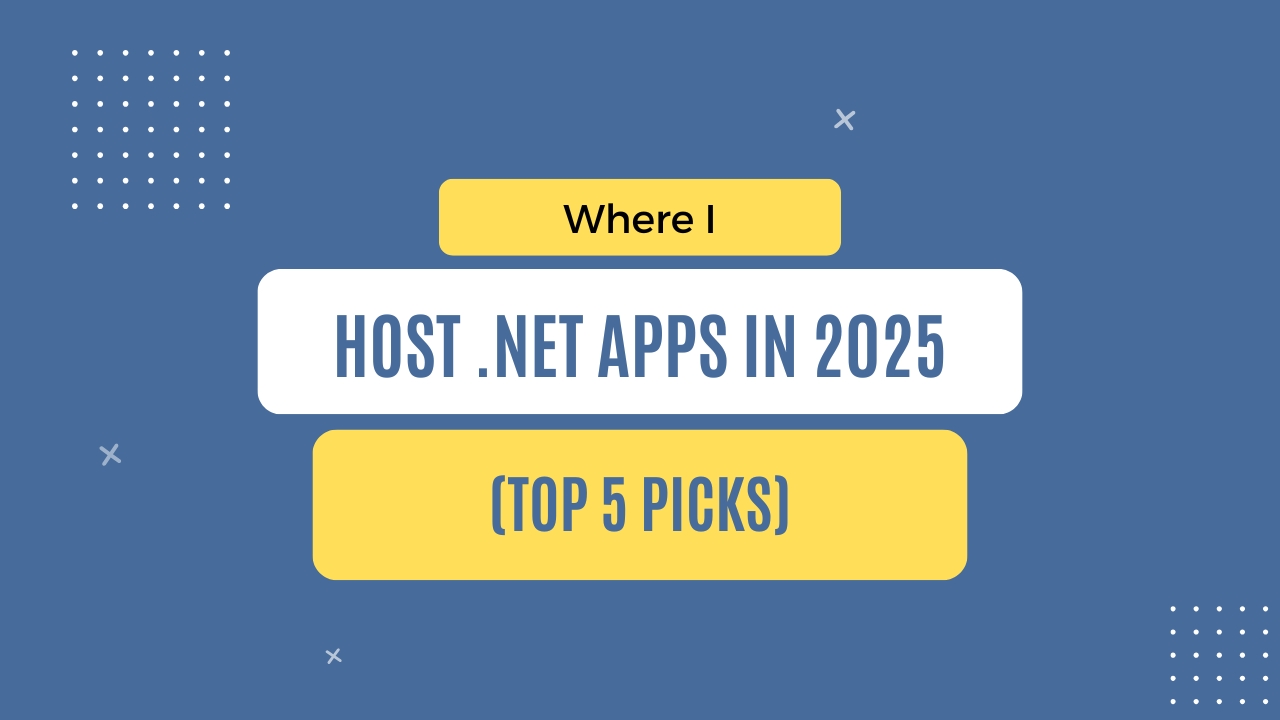Published
- 3 min read
Where I host .NET apps in 2025 (top 5 picks)

A few weeks ago, I finally published this blog which will contain the previous newsletter issues.
But I don’t promote it as much yet for 2 reasons:
- The site is still a work in progress
- A lot of existing content is missing
I analyzed several options for where to host it.
But I decided to use Azure Static Web Apps. Why?
- Free hosting.
- Free SSL certificate.
- Fast, since you get CDN out of the box.
- The blog is built with Astro.js and the content is static.
If you are stuck with hosting dilemmas and not sure where to host your app, here are 5 Azure hosting options with use cases for when to use each one.
1. Static Web App
What is it:
It’s a hosting service for static sites: HTML, CSS, JavaScript, plus optional backend via Azure Functions. It includes built-in CI/CD, global CDN, free SSL certificate, and the ability to set a custom domain (I’ve bought domain separately).
When to use it for hosting:
Perfect for frontends built with frameworks like React, Angular, or Vue that don’t need an entire backend on the same server. This is the first time I have used it, and the site speed is amazing.
2. Azure App Service
What is it:
It’s a fully managed web hosting environment for your apps and APIs. You just push your code: .NET, Node.js, Python, Java, PHP. And Azure handles the rest (scaling, patching, load balancing).
When to use it for hosting:
Ideal for standard web applications or APIs where you don’t want to worry about the underlying server. Great default choice for most backend .NET apps. I’ve used it to host .NET Web APIs and React frontend apps.
3. Azure Functions
What is it:
It’s a serverless compute platform. You write small, single-purpose functions that run in response to events (HTTP requests, timers, queues, etc.) and only pay for what you use.
When to use it for hosting:
Best for micro-APIs, background tasks, or automating parts of your app. Great if your backend logic doesn’t need a full server running 24/7. I’ve used it as a part of an internal API to deploy custom reports. Azure Functions was perfect for this since the API doesn’t have to be online all the time.
4. Container Apps
What is it:
It’s a serverless container hosting service. You build and deploy containers, and Azure handles scaling, networking, and versioning. Without the need to manage Kubernetes.
When to use it for hosting:
Great for microservices, APIs, or background jobs that you want to run in containers, without the hassle of running a full cluster. I haven’t used it yet.
5. Virtual Machine
What is it:
It’s an on-demand, scalable cloud server. Think about it as a server machine you rent in Microsoft’s data center. You get to pick the OS (Windows, Linux), and you’re in complete control of that environment.
When to use it for hosting:
When you need full control over the environment: custom configurations, legacy apps, or self-managed software. Also useful if you’re migrating from an on-prem server. I’ve used it to host some legacy apps that required custom configuration.
In the end, there is not a one-size-fits-all approach.
However, consider these 5 for a start the next time you need to host your .NET app.
Every Friday I share actionable .NET advice, insights, and tips to learn the latest .NET concepts, frameworks, and libraries inside my FREE newsletter.
Join here 13,000+ other developers